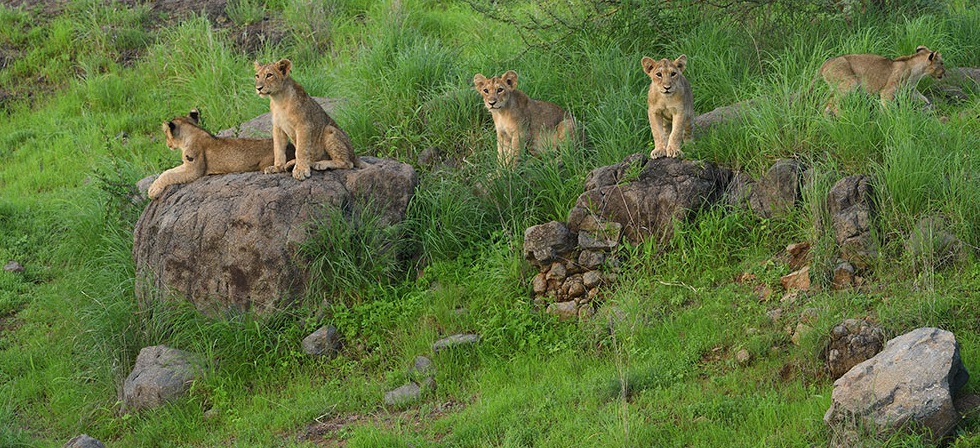News Update: Cyclones and extreme weather events can pose significant risks to wildlife and ecosystems. When it comes to safeguarding the famous lions of Gir and other wildlife in Gujarat, the government and conservation authorities take proactive measures to ensure their protection. Here are some of the steps taken to safeguard Gujarat's wildlife during cyclones like Biparjoy:
Early Warning Systems: Gujarat has a well-established early warning system to monitor cyclones and extreme weather conditions. This system helps in predicting the intensity and trajectory of cyclones, providing authorities with the necessary time to prepare and initiate evacuation plans if required.
Relocation and Temporary Shelters: In the case of an imminent cyclone threat, authorities may choose to relocate vulnerable animals to safer areas or provide temporary shelters. For example, during Cyclone Tauktae in 2021, lions from the coastal areas of Gir were moved to safer locations within the Gir National Park to protect them from the cyclonic impact.
Evacuation and Rescue Operations: Authorities work closely with forest department officials, wildlife rescue teams, and local communities to carry out evacuation and rescue operations. This includes locating and relocating vulnerable animals to safe zones or rescuing injured wildlife affected by the cyclone.
Strengthening Infrastructure: The infrastructure in and around protected areas is continuously strengthened to withstand the impact of cyclones. This includes constructing cyclone-resistant enclosures, reinforcing fences, and ensuring proper drainage systems to minimize damage to wildlife habitats.
Awareness and Education: Public awareness campaigns are conducted to educate local communities, tourists, and stakeholders about the importance of protecting wildlife during cyclones. This helps in fostering a sense of responsibility towards the preservation of Gujarat's unique biodiversity.
Collaborative Efforts: Conservation authorities work in collaboration with research institutions, NGOs, and local communities to develop and implement comprehensive conservation plans. These efforts involve regular monitoring of wildlife populations, habitat restoration, and conducting scientific studies to better understand the impact of cyclones on the ecosystem.
Ecosystem Resilience: Protecting the overall health and resilience of ecosystems is crucial for safeguarding wildlife during cyclones. This includes maintaining and restoring natural habitats, promoting biodiversity conservation, and implementing sustainable practices to reduce the vulnerability of ecosystems to extreme weather events.
By implementing these measures, Gujarat aims to protect its famous lions of Gir and other wildlife from the potential impacts of cyclones like Biparjoy. Through a combination of preparedness, swift action, and collaboration, authorities strive to minimize the risks and ensure the long-term survival of the region's diverse wildlife populations.

